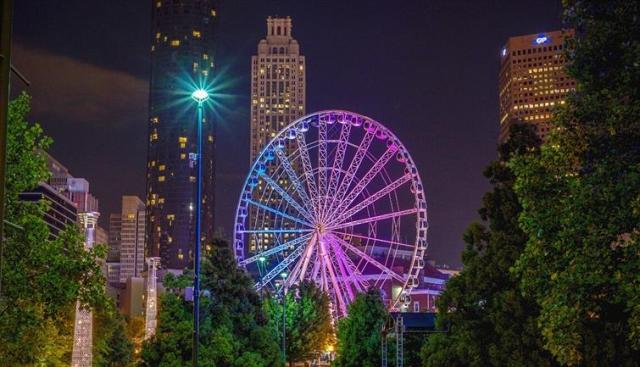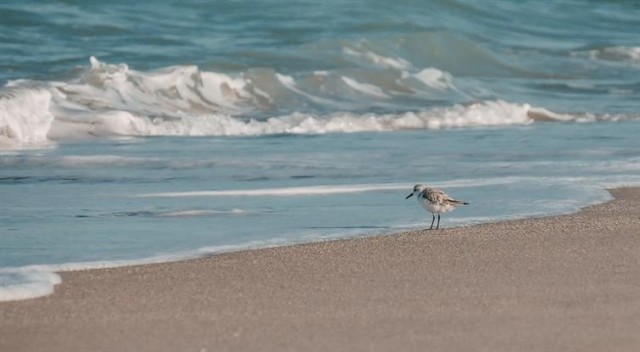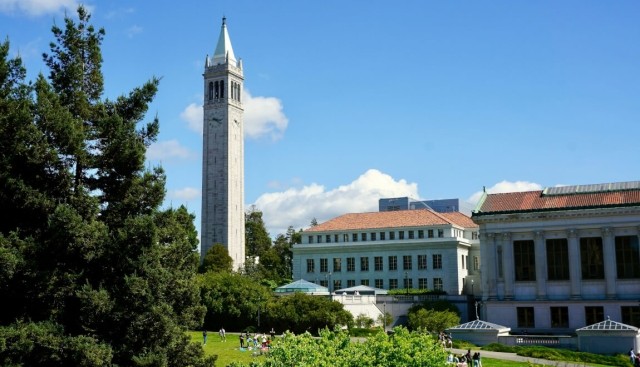Welcome to Atlanta, GA, the city of the South. With over 500,000 residents in the city proper and six million throughout the metro area, it’s safe to say the city upholds its lively reputation. As the third largest city in Georgia, Atlanta’s 134 square miles are a hub of bustling nightlife, fine dining, and professional opportunity.
Is Atlanta a good place to live?
Chances are, if you’re thinking about moving to Atlanta, you’ve heard mixed reviews about what it's like to live in Atlanta:
“The restaurants are great, but what about the traffic?”
“There’s lots to do, but it’s kind of pricey.”
If you’re looking for honest opinions, best-kept secrets, and tips and tricks to navigating the city, who better to ask than the people who live here? We asked a group of Atlanta residents what city newcomers should know, from weather and recreation to traffic jams and affordability. So buckle up and take notes – the reviews are in. According to the locals themselves, here’s what you need to know before moving to ATL.
What is the weather like in Atlanta?

While those farther north might beg to differ, Atlantiens pride their city on experiencing four distinct seasons. While summers can be hot and humid (temperatures average 89 degrees Fahrenheit in July), the annual average temperature in the city is just a mild 61 degrees. Residents love the pleasant climate and change of seasons. Additionally, those in Atlanta can expect to see fall colors creeping into the foliage by mid-October. Thankfully, mountains and hiking trails, such as Brasstown Bald and Tallulah Gorge, are just a couple hours north for your leaf-viewing pleasure.
“The best thing is probably the weather. It’s literally between 55 and 75° in February and March. I also love that the city has a little bit of everything… Great food, good people, [. . .] and downtown venues. It’s also great that the film industry is so prevalent there.”
“I have been living in Atlanta for past 20 years and love it. Weather is perfect, people are great. Everything is easily accessible, nice walking parks and trails."
Does Atlanta have good public transportation?
Atlanta is on the high end of the walkability scale. In fact, it is the 23rd most walkable city in the United States! While many errands require a car, residents live within miles of grocery stores, clothing boutiques, and dining options. Locals describe the city as “easily accessible,” “convenient,” and “close to everything you need.” If you’re looking to commute without a car, Atlanta is home to 38 MARTA stations, as well as 347 buses throughout the city.
Is it expensive to live in Atlanta?
It’s no secret that inflation is at an all-time high. Trust us, we commiserate in the rising rates, too. While we can’t save you from paying seven dollars for a dozen eggs, knowing where to look for housing in Atlanta can help you save on rent, one of your biggest expenses.
Not all rent rates are equal! Prices vary significantly depending on where you live in the metro area. As one resident says, prices are higher “if you live downtown versus in a residential [. . .] area.”
For example, average rent in Midtown Atlanta is around $2,200, opposed to $1,800 in Vinings, a neighborhood less than ten miles away. In addition to exploring all your options before settling on a location, Atlanta renters advise knowing what you want before you start searching. What’s on your list of apartment must-haves? Hardwood floors? An in-unit washer and dryer? One renter advises, “Make sure you [do your] research about the utilities and amenities [offered] at any apartment.” Knowing what you want can help you evaluate potential apartments more effectively, helping you feel like the rent you’re paying is worth the apartment you’re getting.
In the vein of affordability, many Atlanta renters recommend looking just outside the city proper to find apartments within your budget: “Make sure to look on the outskirts of the city, maybe Sandy Springs or Norcross, to find affordable rent.” Remember that living outside the city limits doesn’t make you any less of an Atlantien. If, after calculating your rent and utility costs, you decide you’re better off living in an outlying suburb, don’t sweat it. You’ll still have access to all of Atlanta’s offerings, most likely while paying less for rent!

Who's moving to Atlanta?
No matter what you call it — ATL, the Big Peach, HotLanta (Local rule #1, don’t call it HotLanta) — there’s no denying that Georgia’s capital city is bustling with opportunity. Atlanta’s metro area has seen a 5.14% growth in population since 2020, and it’s not slowing down — in the last year alone, Atlanta brought in 65,000 new residents! We asked Atlanta renters what exactly pulled them to the city. The chart below shows the primary reason ATLiens are settling down in the Hollywood of the South:

Just under half of all respondents indicated that they relocated for a job opportunity. Considering Atlanta’s unemployment rate was just 3.2% as of February 2023, we’re not surprised. The city’s job market thrives off industries of every type, from film and television to healthcare and biomedical. Atlanta is a city in which there is truly opportunity for everybody.
Moving closer to friends and family comes in second place for reasons renters relocated. Other top contenders include city lifestyle, educational opportunities, and Atlanta’s temperate climate.
What is there to do in Atlanta?
In a city with so much to do, it can be overwhelming to even know where to start. Online recommendations turn into pages and pages of restaurants, shops, and events that you’ll never be able to remember. Instead of scrolling endlessly into a rabbit hole of reviews, start by listening to the people who have already experienced the city’s best. Here are the top places to visit in the city, vetted by Atlanta locals.

Parks and Recreation
In between busy streets and skyscrapers, Atlanta is chock-full of green space to run and relax. The city is home to over 3,000 acres of parkland and 33 recreational centers, according to the Atlanta Department of Parks and Recreation. Residents’ overwhelming favorites are Piedmont Park, offering 185 acres of recreational space, and Centennial Olympic Park, which was built as a 22-acre gathering spot for the 1996 Summer Olympics. Other honorable mentions include Historic Fourth Ward Park near the Beltline, 200-acre Freedom Park, and Grant Park, the oldest in the city.
Just twenty miles away, Stone Mountain Park is another favorite destination. According to one resident, “Stone Mountain Park is the most-visited attraction in Georgia! Go hiking, biking or jogging, take in 18 holes of golf, complete the ropes course, catch a movie projected onto the mountain, and enjoy the spectacular nightly laser show!” No matter where you live in Atlanta, you’ll have the opportunity to get out and experience the city’s greenery on foot.

Dining and Restaurants
Calling all foodies! If you like to eat, there’s no better place to indulge in downright good cooking than Atlanta, Georgia. This city has earned a slew of awards for its excellent cuisine, including 15th Top Foodie City in America, 9th Most Exciting Food City in the US (beating out New York AND San Francisco, thank you), and #1 city in restaurants per capita. To start you off, here are a few residents’ takes on the best places to dine in ATL:
- “I like going to the Krog Street food market, fine dining at Canoe, or having brunch at Ray’s on the River. I like taking friends to walk along the eastern Beltline and stop at pubs like Pour.”
- “Check out [Ponce] City Market for a whole bunch of different food places in one spot, or head over to the [B]attery and catch a Braves game with a whole bunch of good eats [. . .] around the stadium.”
- “I love eating at Slutty Vegan, Mary Mac’s Tea Room, and Slim & Husky's."
Seeing as there are over 12,000 restaurants in the metro Atlanta area, we simply can't list them all. The best way to get familiar with the city’s food scene is to get out and experience it. Document your favorites as you go and write down places you’re interested in trying. It may seem intimidating, but soon enough, you’ll recognize restaurants on every corner like the back of your hand.
Shopping
Did you know that retail therapy is proven to lower stress levels, improve immediate mood, and increase your credit bill? (Except for the last statement, none of this is verified by research). In all seriousness, Atlanta and its many shopping centers is a haven for fashionistas, couture enthusiasts, and anyone in need of a wardrobe update. Some of the most notable shopping centers in the city include Phipps Plaza, Shops Around Lenox, and Cumberland Mall, but there are many smaller and locally owned businesses throughout the city. One resident recommends The Underground (a novel shopping and entertainment district), saying “... it’s an experience I hadn’t expected.” Other locals stand by Little 5 Points, saying it’s “a great spot to go and has unique shops and people. It is the trendiest part of the city.”
"Little 5 Points is a cool, upbeat, modern, artsy neighborhood. Even the architecture of the houses surrounding Little 5 is cool. Reminds me of [New Orleans]. Tons of great thrift stores, consignment shops, [and] record stores. There's something for everyone. [You] can stop by Vortex for a famous burger before hitting a comedy show at the attached Laughing Skull lounge."
Entertainment and Events
Perhaps the most coveted aspect of Atlanta is its ever-changing entertainment districts. Between concerts and festivals, farmers markets and pop-up bars, museums and exhibitions, and theater and performing arts, Atlanta residents are never at a loss for weekend plans. Notable favorite spots include:
- The High Museum
- Alliance Theater
- Zoo Atlanta
- The Georgia Aquarium
- Fox Theater
- The World of Coke
Other locals recommend Truist Park, “a fun place to go and [watch] the Falcons play,” and Six Flags, which according to one Atlanta native is “the best attraction in Atlanta.” Don’t forget that Atlanta’s festival scene is one of the best in the United States! Music Midtown pulls in over 300,000 attendees each summer, and the Atlanta Dogwood Festival fills Piedmont Park to the brim with visitors every spring. Of course, these recommendations are not all-encompassing. For a comprehensive list of the best things to do and see in Atlanta throughout the year, check out sites like Discover Atlanta and Atlanta.gov, and get started on your next adventure.

What are the pros and cons of living in Atlanta?
We’ve hit the highlights - fine dining, amusement parks, and shopping centers out of your wildest dreams. However, as any renter knows, moving to a new city means accepting it for the good, the bad, and the traffic. Here’s what Atlanta residents think new renters should remember as they settle into the city.
Con: “Traffic is horrendous.”
Okay, we can’t say we didn’t see this coming. Hundreds of thousands of residents means hundreds of thousands of cars, which means you may just finish that podcast before you even reach your exit on your drive home. Anyone who lives in or around Atlanta knows that rush hour traffic can get a little crazy. While there is unfortunately no way to avoid it entirely, you can make your daily commute a little more tolerable.
The biggest piece of advice from residents? "Try to find a place [to live] near your office.” If you’re a remote employee, you have a little more liberty in choosing where you settle down. If you work on-site, however, the benefit of living a few miles closer to work generally outweighs any small increase in rent. Additionally, be aware that traffic is typically at its worst between 7-9am and 4-7pm. While you can’t get around it, being aware of what to expect can help you keep your cool and drive safely when you’re in the thick of it.
Pro: “It’s never boring in Atlanta.”
As one resident put it, “[Atlanta is] never dull.” The city is alive with festivals, pop-up breweries, concerts, sporting events, and an electric energy that doesn’t fizzle out. Locals have access to “a variety of restaurants and festivals,” as well as a “good variety of places to shop.” Believe it or not, there are over 300 restaurants in Downtown Atlanta alone! If that’s not enough, the city hosts hundreds of concerts each year, as well as several prominent outdoor festivals, including the Atlanta Dogwood Festival, the Brookhaven Cherry Blossom Festival, and Music Midtown.
“What I like most about living in Atlanta is the entertainment life [. . .] Everyone has an option to have fun.”
"I like Music Midtown in the summertime. And I like all of the unique restaurants on the train line in little five points. Piedmont Park is also a great place to walk your dog."

Pro: “I like the duality Atlanta has to offer.”
If you don't see yourself fitting in with the music scene and nightlife escapades, don’t count yourself out of city life just yet. Atlanta has more to offer just minutes outside the perimeter. As one resident said, “I like the duality a city like Atlanta has to offer. You can drive 15 minutes out of the city and be surrounded by ranches and places you would not expect to [see] just outside one of the USA’s major metro areas.”
Another local added that, while the nightlife is dynamic, “the mountains are less than an hour away for hiking and camping.” Atlanta is fantastically fragmented into diverse industries and areas of interest. Residents have the benefit of exploring the city inside and out to find new favorite spots.
Pro: “I like the diversity of cultures.”
Atlanta has an undeniably rich history and a stunning display of diversity across the city. Residents have access to authentic food from every culture imaginable, from traditional Malaysian cuisine to authentic Indian meals. In addition, long-standing museums honor and celebrate the city’s history and influential figures. One resident enjoys exploring the Atlanta History Center, which “...chronicles the city’s past,” as well as the Martin Luther King Jr. National Historic Site, which “is dedicated to the African American leader’s life.”
How long are people staying in Atlanta?
Major cities can often feel like a transient space. People pass through on their way to different opportunities, or they leave for a more subdued location to settle down. Despite Atlanta’s youthful atmosphere, many renters see the city as their long-term home:

As seen above, 54% of residents surveyed report that they intend to stay in Atlanta for ten or more years. In a city so alive with opportunity, we're not surprised. However, if you’re considering finding an apartment in Atlanta, local recommendations only go so far. You can take their word for it, but you may not believe the full extent of what this city offers until you experience it yourself. So come down south and experience ATL in person. Dance through a day of outdoor festivals, or shop, sip and stroll through the city. Stay for a day, a week, or maybe a lifetime. Just remember, once you visit, you may not want to leave.






